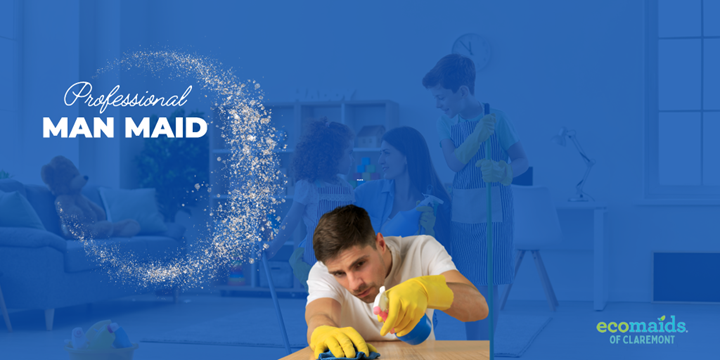This website uses cookies so that we can provide you with the best user experience possible. Cookie information is stored in your browser and performs functions such as recognising you when you return to our website and helping our team to understand which sections of the website you find most interesting and useful.
Blog

Man Maid: The Curious Case Against Hiring Men as Cleaning Technicians
In many ways, my business is a microcosm of our larger society and its trials and tribulations. On a daily basis, even as a small business owner, I experience the very issues that make the nightly news. The workplace, my workplace in particular, is a nexus fraught with the same complex, often antagonistic, social issues that plague society at large. And somehow as captain of this cleaning-business ship, I have to carefully, vigilantly navigate these tricky social and political waters.
Currently, I experience the same labor shortages you hear about in the news. That “Good help is hard to find” is hardly a cliche; it’s a reality. In addition to providing oversight, putting out the proverbial fires, and engaging in sales and marketing, I’m also responsible for hiring. I am endlessly, relentlessly seeking new staff. So, when I find someone who is a great fit with my company, I’m elated. Eureka!
I struck gold recently when a job candidate interviewed. This would-be cleaning technician was an ideal fit –personable, competent, efficient and . . . reliable! If there were such a thing as winning the lottery in the job hiring department, I certainly hit the jackpot. There was just one problem. This candidate was a man.
It’s not unusual for me to encounter prejudice and discrimination in my line of work. After all, there’s plenty of evidence of classism and xenophobia when it comes to my staff. Sometimes my team members are treated “less than” by people with more financial means and I have to intervene to let clients know that my staff are not servants to be dictated to and constantly surveilled.
But in this case, hiring a man –who would be wonderful in this position– posed another challenge. Frankly, many of my clients don’t want men as their cleaning technicians. Even when a man is paired with a female staff member, clients still resist. Though there’s likely multiple reasons for this, the one most often voiced is that they don’t feel safe around a male cleaning technician nor do they feel their children are safe with them. This resistance made me wonder –at what point does having a perceived sense of safety and security justify sexism? Despite the fact that all of our staff undergo background checks and men are paired with a female staff member, clients simply don’t want men cleaning their homes.

There may also be some implicit bias going on as well. Psychological research shows that for “gendered jobs” such as auto mechanic (stereotypically male) or grade school teacher (stereotypically female), people simply prefer job candidates whose gender matches the job. That is, all else being equal, people prefer a male auto mechanic and a second grade teacher who’s a woman. I can’t help but wonder, too, if the same is true for a “maid.” When I referred to the dictionary for the definition of maid, it was explicitly gendered –a maid is a female domestic servant. I’m willing to bet when most people hear the term “maid” or think of a maid, they immediately imagine a woman who does cleaning. They might even envision her in a stereotypical black dress with a white, starched apron tied around her waist. In some respects, that stereotype is true. For the most part, my staff is comprised of women. And it’s likely that some people may think this type of reverse sexism isn’t really sexism at all.
A mental experiment can illustrate unconscious biases we have simply by word substitution. You can do this by simply substituting other social categories in place of the current one. Thus, if someone states, “I don’t want male cleaners in my home.” Mentally insert other social categories instead of the word “male” and listen to how it sounds. That is, use a race, age, class, or a sexual orientation category in place of the word “male” and you can gain insight into how discriminatory that statement is. “I don’t want middle-aged cleaners in my home” certainly smacks of agism and would hardly be acceptable by society at large.
Certainly, people have a right to feel comfortable with whom they invite into their home. And I want my clients to feel at ease with my cleaning crews. At the same time, I don’t want to support sexism, even reverse sexism, in the workplace, and especially in my workplace. Oh, and I need good, competent, reliable workers. I’m not sure what the right answer is; there certainly isn’t an easy one. What these issues do is remind me that they are not simply some abstract principles that all sound good in theory. Rather, they blatantly evince their messy realness in my small corner of the marketplace (ironic for a cleaning business!). And they remind me that as a business owner, I have the power and responsibility to act for the betterment of our society by the seemingly small but nonetheless important decisions I make.

ecomaids Values
Promoting sustainable living
Supporting our local communities
Saving the planet, one spotless home at a time



 (909) 870-0786
(909) 870-0786


